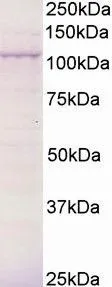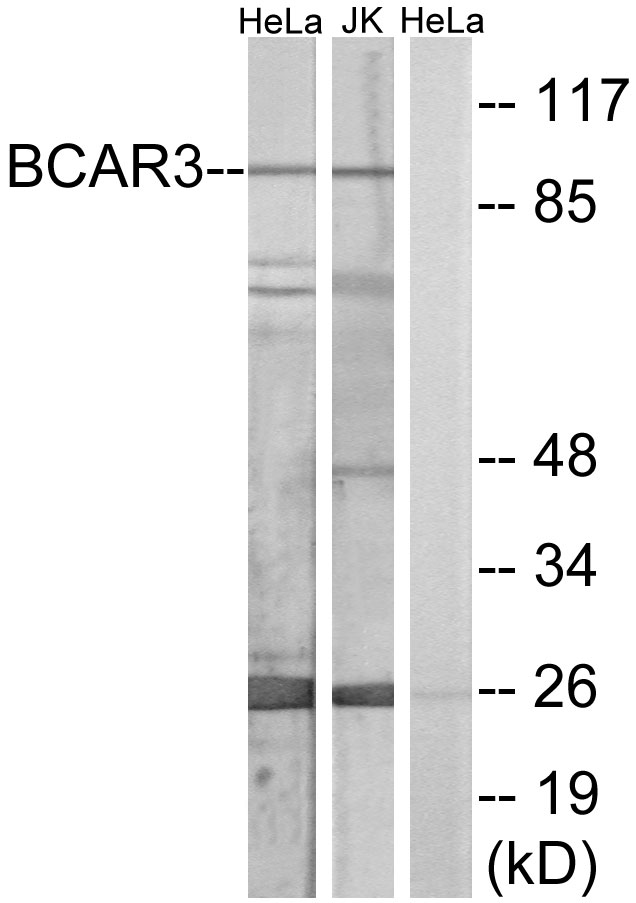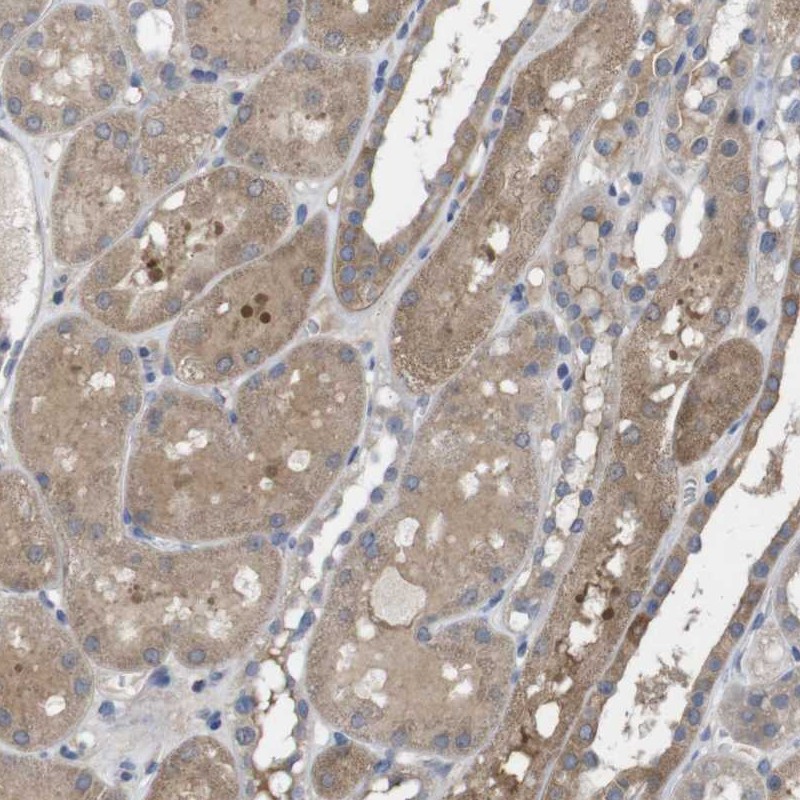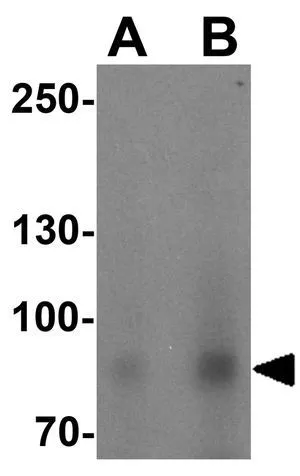
WB analysis of mouse kidney epithelial cells lysate using GTX89796 BCAR3 antibody, C-term. Dilution : 0.5μg/ml Loading : 15μg protein in RIPA buffer
BCAR3 antibody, C-term
GTX89796
ApplicationsWestern Blot
Product group Antibodies
ReactivityHuman, Mouse
TargetBCAR3
Overview
- SupplierGeneTex
- Product NameBCAR3 antibody, C-term
- Delivery Days Customer9
- Application Supplier NoteWB: 0.5-2microg/ml. *Optimal dilutions/concentrations should be determined by the researcher.Not tested in other applications.
- ApplicationsWestern Blot
- CertificationResearch Use Only
- ClonalityPolyclonal
- Concentration0.50 mg/ml
- ConjugateUnconjugated
- Gene ID8412
- Target nameBCAR3
- Target descriptionBCAR3 adaptor protein, NSP family member
- Target synonymsAND-34, MIG7, NSP2, SH2D3B, breast cancer anti-estrogen resistance protein 3, BCAR3, NSP family adaptor protein, SH2 domain-containing protein 3B, breast cancer anti-estrogen resistance 3, breast cancer antiestrogen resistance 3 protein, dJ1033H22.2 (breast cancer anti-estrogen resistance 3), epididymis secretory sperm binding protein, mig-7, migration inducting gene-7, novel SH2-containing protein 2
- HostGoat
- IsotypeIgG
- Protein IDO75815
- Protein NameBreast cancer anti-estrogen resistance protein 3
- Scientific DescriptionBreast tumors are initially dependent on estrogens for growth and progression and can be inhibited by anti-estrogens such as tamoxifen. However, breast cancers progress to become anti-estrogen resistant. Breast cancer anti-estrogen resistance gene 3 was identified in the search for genes involved in the development of estrogen resistance. The gene encodes a component of intracellular signal transduction that causes estrogen-independent proliferation in human breast cancer cells. The protein contains a putative src homology 2 (SH2) domain, a hall mark of cellular tyrosine kinase signaling molecules, and is partly homologous to the cell division cycle protein CDC48. Multiple transcript variants encoding different isoforms have been found for this gene. [provided by RefSeq, May 2012]
- ReactivityHuman, Mouse
- Storage Instruction-20°C or -80°C,2°C to 8°C
- UNSPSC41116161






